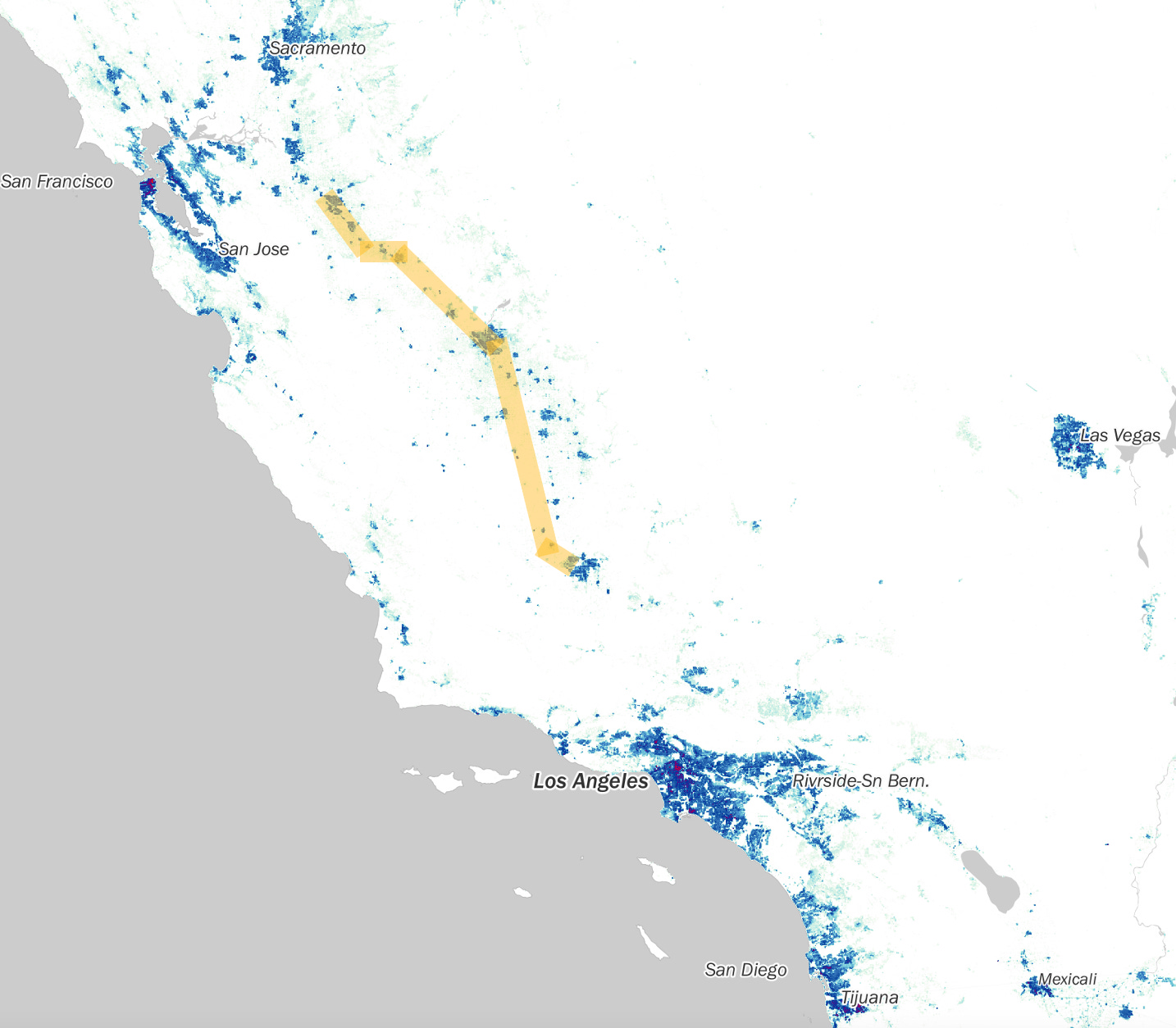America probably can’t have abundance. But we deserve a better government.
Our system is good at boosting economic growth — but not so abundant in other ways. A new book says progressives should stop excusing lousy government.

One slightly jaded way to read Abundance, the new book by Ezra Klein and Derek Thompson, is as a case study of how progressives can make big mistakes. (To get the formalities out of the way, this isn’t quite an official book review1, but I recommend Abundance to the Silver Bulletin audience.2) Starting with housing, Klein and Thompson detail several areas — mass transit, science funding, and so forth — in which the government has produced a morass, resulting in people voting with their feet by fleeing states like California and New York for redder pastures.
And they think this is mostly progressives’ fault. I’m not sure Klein and Thompson would love that characterization. This is a book that’s coming from inside the house. It’s written by two wonky progressives with a well-deserved reputation for being nice guys — and written for a wonky progressive audience. It’s carefully calibrated to persuade insiders as much as voters, and insiders — like California Gov. Gavin Newsom, whose podcast interview with Klein is revealing — have big egos. They piss within the tent a little bit, but only so much.
Klein and Thompson suggest that progressives are well-intentioned but are subject to “blind spots”. But despite the sometimes equivocal framing — ”over the course of the twentieth century, America has developed a right that fought the government and a left that hobbled it” — the scope of the book is the efficacy of government, not the overall political predicament facing the United States. Until and unless Democrats retreat to Bill Clinton-style centrism — “the era of big government is over” — they’re the party that champions the government. And the government isn't working well enough, Abundance persuasively argues.
This has already had significant electoral implications. The blue-state backlash against Democrats — though not solely because of the factors that Klein and Thompson cite — might have cost Kamala Harris the popular vote. In 2020, Joe Biden’s 29.1-point victory in California was equivalent to 3.2 points of margin over Donald Trump in the national popular vote.3 Harris won California by “just” 20.1 points, though, meaning there was a massive 9-point swing toward Trump. Because California is so populous, that alone reduced her popular vote margin nationally by 1.2 points relative to Biden's. Throw in similar swings in Illinois, New York, and New Jersey, and these four states alone were responsible for a 2.3-point shift to Trump nationally, more than his narrow 1.6-point margin in the popular vote.
You might say the popular vote doesn’t matter, but that's only true in the short run. Check out what the potential 2030 redistricting map looks like, when population shifts — if they remain on the current track — will give Republicans roughly another 10 electoral votes. Plus, between California and New York, there is an (um) abundance of competitive House seats that were once relatively safe territory for Democrats.
In some ways, though, that undersells the stakes of Abundance. Klein and Thompson are policy guys more than politics guys, so the book isn’t mainly an exercise in “popularism” or electoral strategy. (Which is possibly a shortcoming — more on that forthcoming — though as a politics guy, of course I’d say that.) Instead, the implications are more tangible.
For instance, it shouldn’t cost $2.5 billion to build a single mile of subway track in New York. But we New Yorkers have it lucky. As a new resident of the East Village in Manhattan, I’m glad that the Second Avenue Subway is at least partly operational, connecting some dense neighborhoods on the Upper East Side. Maybe one day, a decade or two from now, if I’m still in the same apartment, I’ll be able to take the T to 125th Street without changing trains.
By contrast, California is now projected to spend $35 billion — and I’d bet that number will go up, as it has already — to build a single high-speed rail line between Merced and Bakersfield, which might be completed by 2033.4 This is not exactly the Upper East Side, with 100,000 residents per square mile. Rather, if you’ve ever driven I-5 from SF to LA, it’s part of the dusty, empty, interminable stretch that almost makes it worth the extra two hours to take the 101 instead just so the scenery won’t put you to sleep. You don’t have to look at one of those population density maps to know how wasteful this is, but I’ll show you one anyway:
Are we even trying here? Granted, it’s not the least dense stretch in this part of the country: the American West is vast and sparse. However, any 8-year-old playing Ticket to Ride would know that this is not a highly lucrative or logical train route. Bakersfield has about one-quarter the population of Manhattan; Visalia is less populous than the Upper East Side alone.
Infrastructure isn’t my area of expertise, but it was nice to read such a rigorous case that this is every bit as dumb as it looks. Indeed, it’s such a catastrophically bad use of taxpayer money that voters would be irrational not to question what else progressives are screwing up.
The mistakes are piling up, and they're not just rounding errors
In recent years, I’ve had two nuclear fights with Democrats over the following issues: COVID-19 and Joe Biden. I won’t relitigate those at too much length here. But the common thread is that, like the train-to-almost-nowhere in California, they were highly consequential mistakes that can’t be written off as lesser evils or rounding errors.



